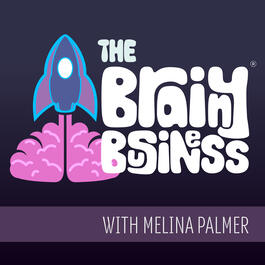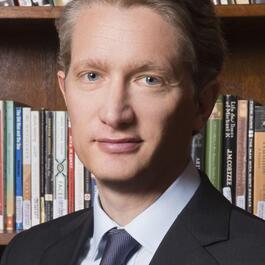
Uncover the Hidden Truths: The Power of Observation in Understanding Human Behavior - Christian Madsbjerg
In episode 325 of The Brainy Business podcast, host Melina Palmer interviews Christian Madsbjerg, author of the book Look and an expert in human observation. Madsbjerg discusses the importance of observation in understanding human behavior and helping organizations make better decisions. He emphasizes that many companies make big mistakes by not asking the right questions and relying too heavily on data abstractions and groupthink. According to Madsbjerg, companies need to constantly study the questions that are most meaningful in their industry in order to stay relevant and successful. Christian highlights the necessity of observing and describing social phenomena before forming opinions and challenges individuals and companies to question their assumptions. Madsbjerg introduces the concept of hyper-reflection, which involves analyzing how people pay attention, to gain deeper insights into human behavior. The conversation provides valuable insights into the power of observation and description in understanding the world around us and making more informed decisions. In this episode: Recognize the critical importance of keen observation in comprehending complex human behavior. Learn about the pitfalls and misleading aspects of treating the human brain like a digital interface. Delve into the influence and impact of societal constructs on human behavior. Harness the capacity of hyper-reflection to delve deeper into your own thoughts and perceptions. Appreciate the added value of integrating observational techniques into scientific enquiry. Show Notes: 00:00:00 - Introduction to Christian Madsbjerg and his Background Melina introduces Christian Madsbjerg, the author of the book Look, and discusses his background in utilizing observation techniques to help organizations better understand human behavior. 00:02:45 - The Importance of Asking the Right Questions Asking the right questions makes a huge difference for companies. They discuss the dangers of jumping into problem-solving mode without fully understanding the problem. Christian explains how companies that fail to constantly study meaningful questions often struggle to adapt and remain successful in their industries. 00:07:49 - The Class on Human Observation Christian shares his experience creating and teaching a class on human observation at the New School in Manhattan. The class focused on using observation techniques inspired by philosophy and anthropology to study social phenomena. He explains that the book is a reflection of that class, allowing more people to learn about observation. 00:11:50 - The Journey of Observation and Curiosity Christian discusses his natural inclination towards observation and curiosity. He reflects on how studying philosophy and different historical perspectives helped him develop a deeper understanding of the assumptions we make about the world. He emphasizes the importance of observing without preconceived opinions and describes observation as a technique for scrutinizing our own assumptions. 00:14:49 - Perception and Intuition Christian challenges the misconception that humans perceive the world as atomistic data. He explains that humans perceive things holistically, seeing things as part of a larger social context rather than as individual data points. He highlights the importance of understanding the relationship 00:18:17 - The Danger of Comparing Computers to Human Brains, Comparing computers to human brains can lead to a misunderstanding of what it means to be human. Humans are not just intellectual beings; much of our experience and understanding comes from our bodies and the spaces we inhabit. 00:19:55 - The Problem with Having Strong Opinions, Having strong opinions about everything can create a filter between us and the world. It prevents us from seeing things objectively and directly, as we interpret everything through a political or opinionated lens. 00:21:54 - The Importance of Describing Social Phenomena, In order to better understand the world and the work we do, we need to study and describe the social phenomena at the center of our work. By understanding the context and dynamics of a situation, we can provide better advice and make more informed decisions. 00:25:30 - Case Study: Observing Fundraising Strategies, By observing people in the streets trying to raise funds for the white rhinos, a student learned valuable lessons about effective fundraising. He discovered that gentle and subtle approaches were much more successful than aggressive or shaming tactics. 00:30:44 - The Power of Hyper Reflection, Hyper-reflection is a type of attention that allows us to observe how others pay attention. By practicing hyper-reflection, we can better understand the dynamics and behaviors of people and organizations, leading to innovation and positive change. 00:35:36 - The Importance of Observation and Description, Christian discusses the importance of observing and describing social phenomena in order to gain insight and break down biases and prejudices. He emphasizes the value of feeling connected to the world and having a direct relationship with it. 00:37:35 - Building Trust and Observing Humans, Melina mentions how this work reminds her of an Apple Fitness' "Time To Walk" episode with Jane Goodall she recently listened to. Christian draws a parallel between Jane Goodall's observations of chimpanzees and his own observations of humans. He highlights the need to build trust with people in order to accurately describe and understand group dynamics and assumptions. 00:40:11 - Different Perspectives on the Same Phenomena, Christian recognizes that he and Melina approach the same phenomena from different angles, with behavioral science and cognitive science on one side and philosophical perspectives on the other. They agree on the importance of diverse methods and techniques in gaining insight. 00:42:33 - Observation in Science, Christian and Melina discuss the role of observation in scientific breakthroughs and paradigm shifts. They agree that observation is at the heart of good science and that scientists should incorporate more observation into their work. 00:44:50 - Conclusion, Melina's top insights from the conversation. What stuck with you while listening to the episode? What are you going to try? Come share it with Melina on social media -- you'll find her as @thebrainybiz everywhere and as Melina Palmer on LinkedIn. Thanks for listening. Don't forget to subscribe on Apple Podcasts or Android. If you like what you heard, please leave a review on iTunes and share what you liked about the show. I hope you love everything recommended via The Brainy Business! Everything was independently reviewed and selected by me, Melina Palmer. So you know, as an Amazon Associate I earn from qualifying purchases. That means if you decide to shop from the links on this page (via Amazon or others), The Brainy Business may collect a share of sales or other compensation. Let's connect: Melina@TheBrainyBusiness.com The Brainy Business® on Facebook The Brainy Business on Twitter The Brainy Business on Instagram The Brainy Business on LinkedIn Melina on LinkedIn The Brainy Business on Youtube Learn and Support The Brainy Business: Check out and get your copies of Melina's Books. Get the Books Mentioned on (or related to) this Episode: Look, by Christian Madsjberg Sensemaking, by Christian Madsjberg The Moment of Clarity, by Christian Madsjberg A More Beautiful Question, by Warren Berger Both/And Thinking, by Wendy Smith and Marianne Lewis Connect with Christian: Follow Christian on LinkedIn Christian's website Top Recommended Next Episode: How Minds Change, with David McRaney (ep 210) Already Heard That One? Try These: For The Culture, with Marcus Collins (ep 305) Survivorship Bias (ep 110) What Problem Are You Solving? (ep 126) Mental Accounting (ep 282) What is Cognitive Semiotics? (ep 259) Using Semiotics in Retail, with Rachel Lawes (ep 191) Non-Obvious Thinking, with Rohit Bhargava (ep 297) Habits (ep 256) Solving Modern Problems with a Stone-Age Brain (ep 237) Confirmation Bias (ep 260) Biases Toward Others – Including Groups (ep 314) Fundamental Attribution Error (ep 268) The Overwhelmed Brain and Its Impact on Decision Making (ep 32) Functional Fixedness (ep 194) A More Beautiful Question, with Warren Berger (ep 200) Evolutionary Ideas, with Sam Tatam (ep 204) Focusing Illusion (ep 89) Anthropology, Market Research and BE, with Priscilla McKinney (ep 196) Using Ethnography in Business (ep 324) Other Important Links: Brainy Bites - Melina's LinkedIn Newsletter
From "The Brainy Business | Understanding the Psychology of Why People Buy | Behavioral Economics"




Comments
Add comment Feedback